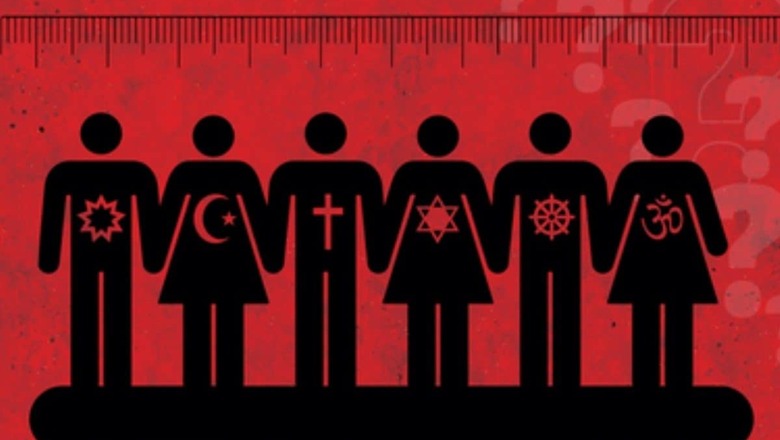
views
Every view has a counter, every opinion can be different, and at News18, we value each one of them. To present these views and opinions to you – the reader – is not just a job, but also our duty.
News18 kicks off a new series, Sticking Point, which will have prominent opinion makers from across India and the world face off on varied topics through their written words. Sticking Point will be the voice of diverse authors, as they debate on a particular subject of national and international importance, and more importantly, one that enlightens our reader.
Frankly, I am a little perplexed by the priority being given to the Uniform Civil Code (UCC), as though this is the only and absolutely essential unfinished reform. It is true that it is part of the Directive Principles of the Constitution. Article 44 lays down “that the State shall endeavour to ensure for the citizens a uniform civil code throughout the territory of India”. The key word here is “endeavour”. The section on Directive Principles begins with the keywords “the provisions contained in this Part shall not be enforceable by any court”. In other words, what the Directive Principles advocate are indicative in nature, should they be helpful in the ‘governance of the country’. For instance, one of its recommendations (Article 47) is that the State shall “endeavour to bring about prohibition of the consumption except for medicinal purposes of intoxicating drinks”. Have we, with the disastrous experiment currently in Bihar and partially in Gujarat, implemented this?
The controversial question that I want to ask is: is the UCC good for the governance of the country? Our Constitution is based on the principle of unity in diversity. Is unity strengthened by obliterating the diversity within the country? Or is unity weakened by a clumsy attempt at homogenisation without regard to those very diversities that make us who we are?
Sometimes, in the evolution of nations, a better approach is to encourage and enable reform measures that come from within different religious communities, rather than impose a one-sided version on unwilling or unconvinced members through fiat. A much better strategy is to amend or abolish personal laws that are directly violative of the fundamental rights within the Constitution, rather than a wholesale demolition of all the varying traditions and customs of different religious communities and tribes. The latter approach was first attempted in a partial manner when the Hindu personal law was amended in the early 1950s. It was also in evidence when the Parliament enacted a law to abolish the repugnant provision of triple talaq in Muslim personal law.
The fact is that the UCC is much too complex a project to implement in a country of manifest diversity like India. It will open Pandora’s box and heighten cleavages within communities, and build inner resentments that can explode into widespread feelings of discrimination and marginalisation.
It is for this reason that the 21st National Law Commission in its Report in 2018, after eliciting opinions from lakhs of people, came to the conclusion that a UCC is “neither necessary nor desirable at this stage”. One of its key lines was that: “Cultural diversity cannot be compromised to the extent that our urge for uniformity itself does not become a reason for the threat to the territorial integrity of the nation”. This categorical warning came during the NDA government’s tenure. Why then was this conclusion not accepted by the government? The reasons for this must be made public, rather than glossed over by the hysteria that now surrounds the implementation of the UCC.
Secondly, the whole approach thus far has been far from serious. On October 7, 2016, the Law Commission shot off a letter to the chief ministers enclosing an objective-type questionnaire on the need for a UCC. Nitish Kumar was the first chief minister to reply to that letter. He said that such complex issues cannot be tackled through such an amateurish approach. The UCC must be based on broad-based consultations with all religious denominations, given the multicultural, multireligious nature of our society. In the absence of such in-depth consultations, any attempt at premature or hasty tampering with long-standing religious practices that deal with complex issues of marriage, divorce, adoption, inheritance and the right to property and succession, would be inadvisable.
What the government does not seem to understand is that the enforcement of the UCC would require all current laws applicable in such matters in respect of Muslims, Christians, Parsis and Hindus (including Buddhists, Sikhs and Jains), apart from specific communities like the Adivasis, to be scrapped. Does the government have a draft of such a new law, with concrete details of which provisions of what religious practice are to be scrapped and what will replace them? The truth is that no such draft has been circulated. The stakeholders are in the dark about what is being proposed and what is to be replaced. Nor there has been any discussion on this subject in the Parliament, the legislative Assemblies of states, and other forums of civil society.
Thirdly, what has the BJP done so far to actually implement its promise to bring in the UCC? On two occasions, the government said that it would be bringing a Bill in Parliament, but on both occasions, it did not. The Law Commission, under its regime, recommended against the UCC, but the government has not provided any cogent reasons against its findings. Even after nine years in government, no draft law based on widespread and substantive consultations with all religious denominations exists. Then, what is all this commotion about the UCC?
As a general rule, societies and nations must ensure that the remedy does not become worse than the supposed disease. Parliament has all the powers to nullify or amend personal laws on a piecemeal basis which are unjust, against gender parity, and the fundamental rights of the Constitution. It did so without any UCC in the case of triple talaq. Why can’t it proceed in this manner with the personal law of other communities, rather than an approach of one shoe fits all sizes?
We must learn from history. Turkish President, Kemal Ataturk, in 1935, abolished Islamic personal law and imposed overnight the Swiss Civil Code in his country. The backlash against this kind of drastic ‘reform’, for which consultations had not taken place, and the society not suitably prepared, is there for all to see, in the return of Islamic conservatism under current President Erdogan’s rule.
The UCC must be seen as a measure of reform for the welfare of the people, and not a political instrumentality to be hurriedly imposed against their wishes and without proper consultations with them.
The author is a former diplomat, an author and a politician. Views expressed in the above piece are personal and solely that of the author. They do not necessarily reflect News18’s views.



















Comments
0 comment